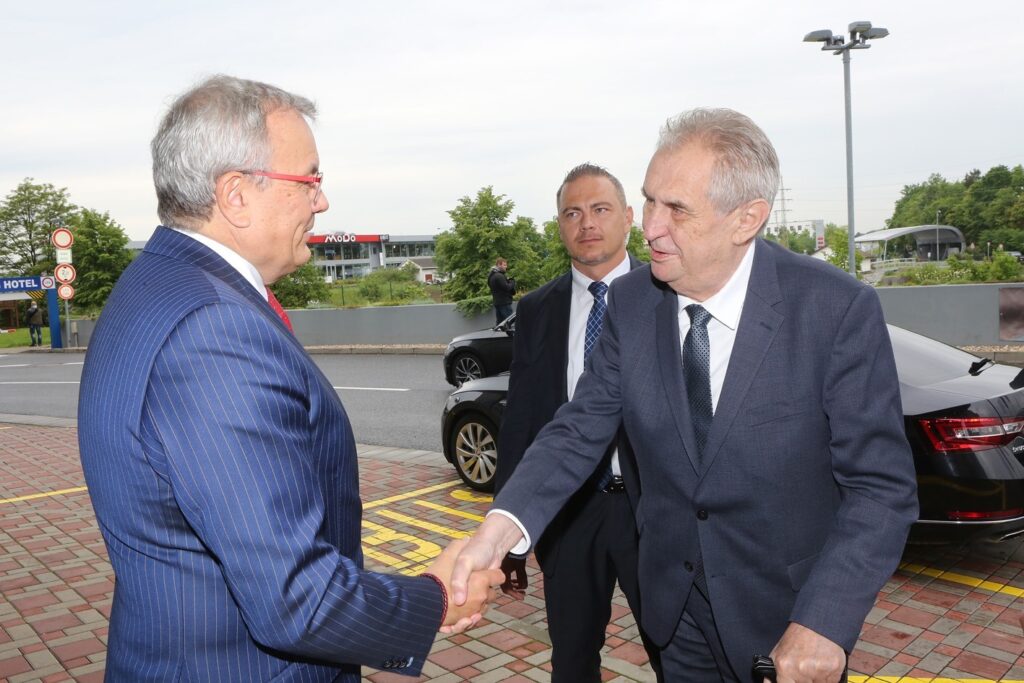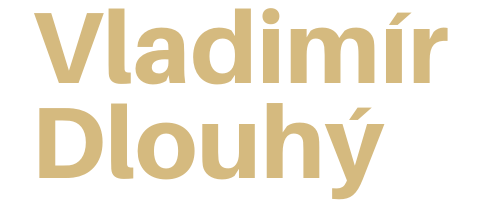What I do
1. Teaching at IES FSV UK
The course is intended for all students who want to supplement the theoretical study with practical economic and political experience from the 20th century, but especially for students who will look for future work in the financial and banking sector, or in the top state administration. The course represents a historical overview of the development of macroeconomic policy from the second half of the 19th century until today.
After the introductory lecture there is another devoted to the overview of the economic development of the most significant economies between 1870 and 1913, with an emphasis on explaining the nature and functioning of the Gold Standard. The following lectures deal with the economic situation after World War I, 1920s hyperinflation, and restoring of the Gold Standard, the causes of the Great Depression of the 1930s, and the consequences of the Keynesian Revolution for a new perspective on economic policies. The interpretation also deals with the post-war period – the creation and functioning of the Bretton Woods system, post-war reconstruction (including the Marshall Plan) and the foundations of the European monetary system (the creation of the EMS) and European integration. This is followed by a discussion of economic policy of the late 1950s and 1960s, based on neoclassical synthesis (Philips Curve, Okun’s Law) and at fixed exchange rates. The next lecture is devoted to monetarism and subsequently rational expectations and Lucas’ criticism. The course continues with an interpretation of economic policy after the collapse of the Bretton Woods system, at the existence of floating exchange rates, and the reaction to the stagnation of inflation in the 1970s. The last three lectures deal with the stabilization policy of the 1980s (inflation and deficits), various types of financial crises in both advanced and developing economies between 1980 and 2007 and finally the Great Recession between 2008 and 2009. The last lecture is devoted to the project of the common European currency and the Euro crisis in 2010.
The course is completed with written exam.
Download my lectures
Cross-cutting selection of lectures for the course titled Development of Macroeconomic Policy
2. Czech Chamber of Commerce

The state of emergency and coronavirus pandemics
Adequate response to the economic impact of the pandemic was the second most important task after protecting human health and lives. Immediately after declaration of the state of emergency in mid-March, the Czech Chamber of Commerce became one of the main places where suggestions, reminders, complaints and recommendations for the Government of the Czech Republic regarding the measures to ease the situation of entrepreneurs most affected by that virus were gathered. The Chamber of Commerce and I have personally participated in all the discussions and I am glad that together with the Government, we managed to kick-start the entire programme, which will protect at least a part of the Czech economy. Its main building blocks comprise tax and levy liberation packages, interest-free or state-guaranteed (at least in part) loans, deferrals of instalments, including loans, wage compensations (the so-called ‘kurzarbeit’) and, finally, support to independent entrepreneurs (self-employed persons).
Currently in preparation, projects COVID III and COVID Plus are decisive for the further development of the Czech economy. In both cases, they concern the provision of state guarantees to commercial banks, so that they can continue to provide loans mainly to those businesses that have been affected by the pandemic measures and which otherwise would not have any credit issues should the measures have not taken place. These businesses would currently not receive any financing without state guarantees. COVID III is intended for medium-size companies with up to 250 (or more precisely 500) employees and state guarantees will be provided through Českomoravská záruční a rozvojová banka, a.s. (the Czech-Moravian Guarantee and Development Bank). COVID Plus is intended for the largest companies (with over 500 employees) and the guarantees will be provided through Exportní garanční a pojišťovací společnost, a.s. (the Export Guarantee and Insurance Company – EGAP).
Without sufficient liquidity, the restart of the Czech economy will lag behind the economic recovery in Europe and the rest of the world. The countries in our vicinity, especially Germany, provide very generous financial injections and, namely liquidity, and the Czech Government needs to make maximum effort in this regard, to the extent that the circumstances allow.
Check out the website of the Czech Chamber of Commerce with details about our activities.
Return to normal life
The coronavirus is not the only problem of the World; with the retreat of the pandemic, we have to go back to normal life. The Czech Chamber of Commerce also returns to the topics we were dealing with before the declaration of the state of emergency. In the coming weeks, we will devote more time to these topics in the Czech Chamber of Commerce.
Master craftsman’s examination and the promotion of crafts and trades in our lives; the issue of apprenticeship education. We believe that the master craftsman’s examination will support the importance of quality, experienced and, especially, polite craftsmen in our lives. At the same time, we will look for avenues to help craftsmen and entrepreneurs in the currently difficult times. With the Ministry of Education, we have been discussing a new form of the National Qualification System. We want to expand the list of authorized professions and persons. We place a great emphasis on the development of apprenticeship education and retraining.
Construction Code. The Czech Chamber of Commerce was highly involved in the preparation of the new building legislation. We have sparked a broad debate and induced the proposal for a new building law, in which we participated; it had many supporters, but also opponents. We regret that, so far, the Government seems to have backed away from the original idea (which it has confirmed by approving the factual intent of the new law) and we do not agree with the version, which has been promoted by the Ministry of Regional Development.
Long-term financing of healthcare in the Czech Republic. This is a major problem for Czech entrepreneurs, as the levy load on work (social and health insurance contributions) in our country is one of the highest among the developed nations. Our health section organises already the third seminar on this topic, at which senior representatives of the Ministry of Health and other institutions regularly participate.
The Coal Commission. The Czech Republic faces a very difficult decision on how to reconcile the environmental commitments we have made at different levels, with the need to maintain a sustainable supply of all kinds of energy to the country for a long time. The Coal Commission’s goal is to recommend to the Government long-term sustainable procedure for the de-carbonization of our economy, which will respect our strategic security, acceptable use of current energy sources and social risks associated with de-carbonization.
Green Deal and the Czech economy. The European Commission’s proposal, the so-called Gree Deal, must undergo critical discussion at the time of the coronavirus pandemic. The Czech Chamber of Commerce supports basic long-term goal of the EU to reach climate neutrality in 2050; however, we disagree with the effort to increase climate and energy goals as of 2030. In this era of economic crisis, we must, first and foremost identify and, if possible, quantify the effects of the pandemic, not only on the economies of national states, but also on the EU as a whole. The objectives cannot be unrealistic, destined to fail from the very beginning. At the same time, the Czech Chamber of Commerce believes, that the so-called Green Deal will be an opportunity for the Czech research community and for the Czech industry to draw financial resources for development of new technologies and industrial production, precisely with the main objective of our economic policy – i.e. increasing the added value and competitiveness of our national economy.
Energy sector. In addition to the Coal Commission and the work on environmental policy, we are closely monitoring the Government’s decision-making on the construction of another nuclear block in the Dukovany area. The Chamber of Commerce is convinced that without another nuclear bloc, our country will not be able to meet both its long-term environmental commitments and secure the sustainable supply of our country with all kinds of energy at prices that do not harm the long-term competitiveness of the Czech economy. In this regard, the Government has our full support.
The support of export. With the Ministry of Foreign Affairs and the Ministry of Industry and Trade we have been also discussing a return to normal life in the field of exports. We want to resume foreign business missions as soon as possible. We are preparing a list of countries and regions to focus on now. As soon as the situation in the world allows, we will quickly resume business missions. In the meantime, the Chamber of Commerce regularly organises webinars focused on individual markets, for now those of the EU countries.
Labour market and employing foreigners. With the coronavirus crisis, the Czech labour market came under pressure. Problems of the tourism, hospitality, accommodation and services sectors will lead to a rise in unemployment. At the same time, we are facing a deficit of workforce in agriculture and in some other sectors. In the longer run, the Chamber of Commerce wants to push through a greater flexibility of the labour market. We disagree with the increase in unemployment benefits above today’s level and request the Government to encourage the newly unemployed to find work more actively and to accept job offers. However, we know that the situation will not improve immediately, thus, in the short run, we are seeking the fastest possible return of foreign workers to our country.
3. National Economic Council of the government of the Czech Republic (NERV)
I have been appointed by the Government of the Czech Republic to a 16-member group of Czech economists, as the main advisory council for the Government in its economic policy decisions. It is an acknowledgement, responsibility, and also a great unknown – we want to influence the Government, not just to confirm its intentions. In the meantime, we are focusing on evaluating the Government’s economic policy in response to the coronavirus. At the same time, we consider extremely important to start preparing following steps for faster kick-starting of the Czech economy once the state of emergency is over, and for the medium and long-term strategy, especially the promotion of investment in modern technologies, which are intended to increase the share of high value-added production in the Czech economy.
4. Eurochambres
Last autumn 2019, I was elected as one of the Deputy Presidents of Eurochambres – the Association of European Chambers of Commerce and Industry. I also serve as Chairman of the Committee for Sustainable Europe. The role of Eurochambres today is primarily to cooperate with the European Commission and other European institutions in shaping European policies to support members’ economies. We have some critical comments to the EC’s latest plan to revitalise the European economy and we are also very cautious about the European Parliament’s proposals to make environmental commitments of the EU Member States even stricter towards 2030.
